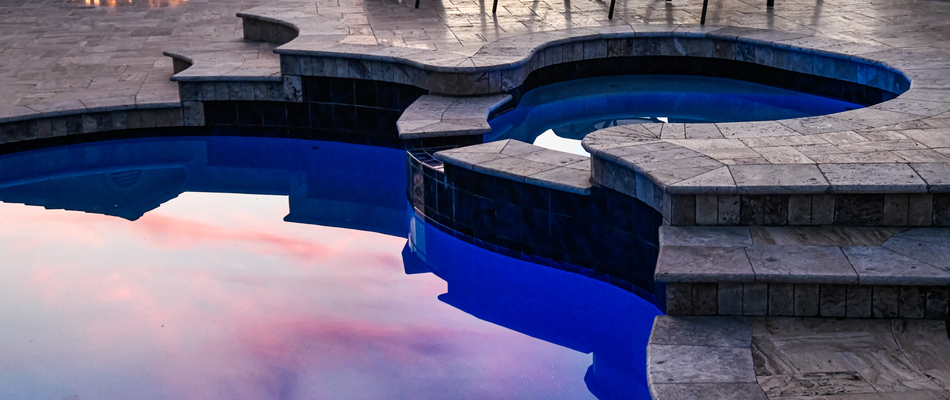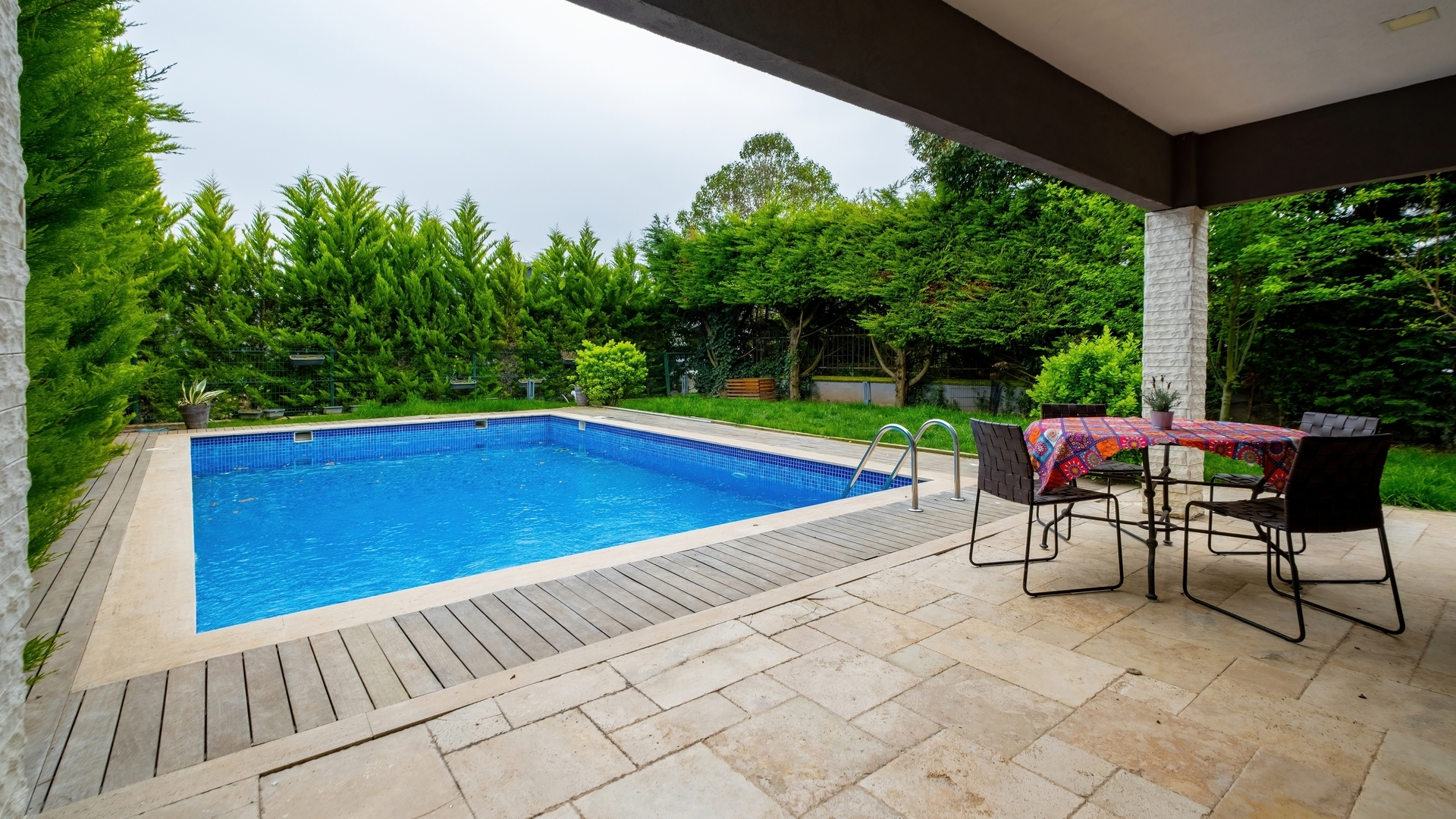If you’re thinking about installing a swimming pool on your property in New Jersey or Pennsylvania, there are many things to consider before any construction begins. Things such as shape, size, material, and cost are always the general things you need to decide on, but these days, you also have to decide if you want a freshwater or saltwater pool! Both options have their pros and cons, and whichever one you decide to use for your swimming pool comes down to personal preference!
What are the differences between freshwater and saltwater pools?

The difference between freshwater and saltwater pools might seem obvious: one has salt and the other one doesn't. But their differences are much more than this. One of the main differences between the two is the chlorination process. Freshwater pools use chlorine tablets or liquid that is physically added to sanitize the pool. Saltwater pools use salt chlorinators that are constantly chlorinated in your pool without you having to physically add anything. Both options are great and whichever one you choose depends on your personal preference when it comes to maintenance.
Add a waterfall to your freshwater or saltwater pool to turn it into a relaxing oasis!
What are the pros and cons of freshwater pools?
Although they are the more popular choice for pools and have a lot of pros, freshwater pools also have a few cons that should be considered.
Pros:
- Simple repairs - The majority of maintenance and repairs for a freshwater pool can be completed on your own.
- The initial investment is less expensive - Because there is no need for a chlorine salt generator or special liners, establishing a freshwater pool costs much less money upfront.
- Uses less electricity - Because there is no need for a salt chlorine generator in a freshwater pool, electricity usage is reduced, resulting in lower ongoing costs.
Cons:
- Chlorine can be harsh - The higher level of chlorine may cause your skin to dry out and cause your eyes to become irritated.
- Requires constant attention to chlorine levels - To properly kill excess bacteria, you must regularly check the chlorine levels and add other chemicals. This increases maintenance time and costs.
- Chlorine has to be added physically - Chlorine will need to be added physically by applying tablets or liquid.
What are the pros and cons of saltwater pools?
Like freshwater pools, saltwater pools have their own pros and cons to consider.
Pros:
- They are less harsh - You won't have to worry about harsh chemicals getting in your eyes or irritating your skin.
- Requires fewer chemicals - A saltwater pool requires fewer chemicals to maintain due to the natural chlorine, which reduces long-term costs.
- Less fading of swimwear - The levels of chlorine are not high enough to fade swimwear.
Cons:
- More expensive upfront - Although they are less expensive in the long run, saltwater pools need a saltwater chlorination system to start and those are generally expensive.
- Saltwater can cause damage - Saltwater can damage the parts of your pool and the hardscapes around it such as pool lights, liner, and furniture.
- Repairs are tricky - Saltwater pools are more complex. For many repairs and maintenance of your saltwater pool, you will need to hire professionals to ensure no damage is caused.
Give us a call to schedule our swimming pool installation service.
If you've been thinking about having a swimming pool installed on your property, our team at Trevor's Landscaping is here for you! Whether you want a freshwater pool or a saltwater pool, we will provide you with an amazing pool for you and your loved ones to enjoy. Our service is offered to commercial, residential, and HOA properties in Clinton, Califon, Washington, New Jersey, and surrounding areas. We also offer our service to properties in Easton, Bethlehem, Nazareth, Pennsylvania, and nearby areas. For properties in New Jersey call (908) 399-6281. If your property is in Pennsylvania, call (610) 215-9286.



Comments (0)
Thanks for your comment!
Thanks for your feedback! Your comments have been successfully submitted! Please note, all comments require admin approval prior to display.
Error submitting comment!
There is a problem with your comment, please see below and try again.